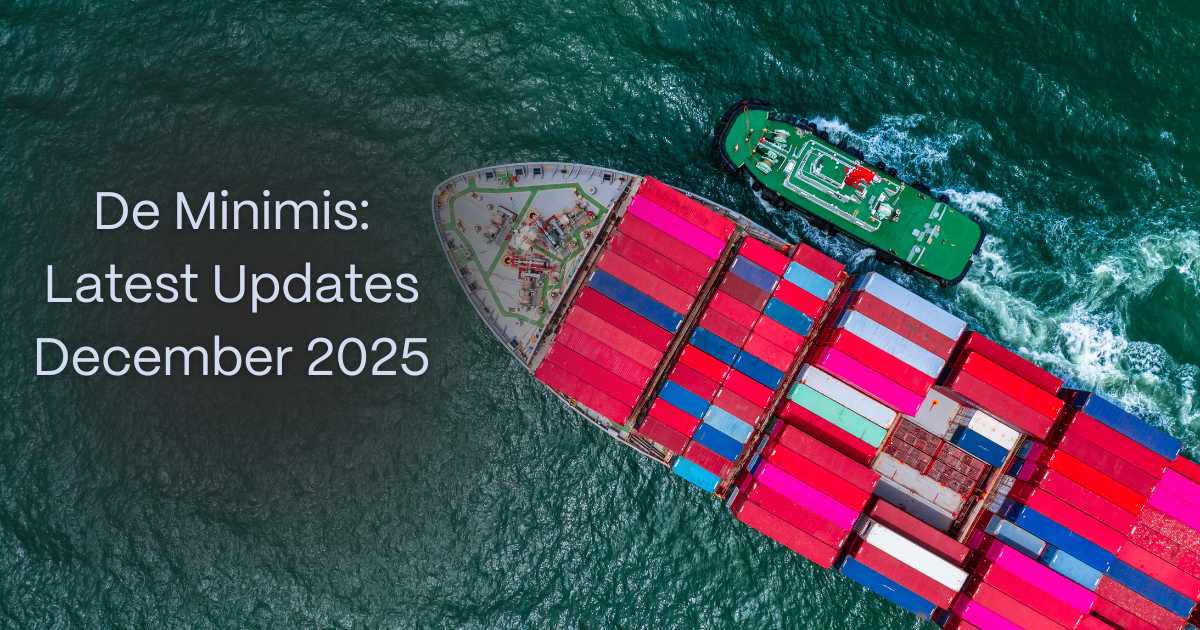Mexico has announced new import tariffs on textile products in a significant move aimed at bolstering its domestic textile industry. Economy Minister Marcelo Ebrard, alongside President Claudia Sheinbaum, unveiled the policy change on December 19, 2024. The increased tariffs took effect immediately and are set to remain in place until April 22, 2026.
Under the new regulations, finished textile products will be subject to a 35% import tariff, while textile merchandise imports will face a15% tariff. According to Ebrard, these measures are designed to provide a competitive edge to Mexican manufacturers and safeguard jobs in the country’s textile sector.
Exemptions for Free Trade Partners

The tariff hikes notably exclude countries with which Mexico has free trade agreements. For instance, imports from Canada and the United States, covered under the United States-Mexico-Canada Agreement (USMCA), will not be affected by these changes.
This strategic exemption underscores Mexico’s commitment to honoring its trade agreements while selectively using tariffs to protect vulnerable sectors. “These tariffs are not directed at any particular country,” Ebrard clarified, addressing speculation that the policy was targeting inexpensive imports from China.
Industry Reactions and Economic Implications
The announcement has generated mixed reactions within the industry and among trade analysts. Domestic manufacturers have primarily welcomed the tariffs, viewing them as a long-overdue measure to counteract competition from lower-cost imports. Many have cited the influx of inexpensive textile products as a significant challenge to the survival of local businesses.
However, critics warn of potential downsides. Some fear that higher tariffs could lead to increased prices for consumers and disrupt supply chains dependent on imported materials. Others worry about potential retaliatory measures from affected trade partners outside Mexico’s free trade agreements.
A Strategic Move for Domestic Growth
The decision reflects a broader strategy by the Mexican government to strengthen key industries and ensure economic resilience. President Sheinbaum emphasized the importance of safeguarding domestic production and securing the livelihoods of workers in the textile sector.
“This policy is about leveling the playing field,” she stated. “By supporting our local businesses, we’re ensuring the sustainability of an industry that is vital to our economy.”
As the tariffs remain in place for the next two years, theireffectiveness will be closely monitored. Policymakers and industry stakeholderswill be assessing their impact on domestic production, employment rates, andconsumer prices.
While the exemptions for free trade partners mitigate some concerns, Mexico’s approach serves as a case study in balancing protectionism with global trade obligations. Whether the tariffs achieve their intended goals will ultimately depend on how well the textile industry leverages this opportunity to innovate and grow.
What Does this mean for US Companies?

The policy change primarily targets apparel imports and is expected to have significant implications for US apparel companies. For years, U.S. eCommerce businesses leveraged a loophole in the trade system by routing goods from China through Mexico and then shipping them to the U.S. one order at time.
This approach relied on the Section 321 provision, which allows duty-free entry for shipments valued at $800 or less. Companies could avoid paying tariffs on Chinese imports by taking advantage of this provision, significantly reducing their costs.
The strategy became a staple for many U.S. apparel brands and eCommerce companies. Fulfillment centers in Mexico provided a solution, offering low labor costs and proximity to the U.S. market. Businesses could store inventory in Mexican warehouses and fulfill customer orders, creating the illusion of domestic shipping while sidestepping U.S. tariffs.
Implications of the Decree
President Sheinbaum’s decree marks a turning point for the trade dynamics between Mexico, the U.S., and China. By closing this loophole, Mexico aims to curb practices that undermine its customs regulations and to strengthen its trade policies. The apparel industry, which heavily relied on this strategy, will likely face the brunt of the impact.
For U.S. E-Commerce Companies
The elimination of the border-skipping strategy will result in higher operational costs for U.S. businesses that have been utilizing Mexican fulfillment centers. Companies may need to reconsider their supply chain strategies, potentially rerouting imports directly to the U.S. and facing the associated tariffs. This shift could erode profit margins and lead to price increases for consumers.
For Mexico
The decree underscores Mexico’s commitment to enforcing its customs laws and maintaining fair trade practices. By eliminating this loophole, the country could strengthen its position as a responsible trade partner while encouraging greater compliance with its regulations. The move may also encourage U.S. businesses to invest more directly in Mexico’s economy rather than exploiting it as a transit point.
What Lies Ahead?
The apparel and e-commerce industries are bracing for the ripple effects of this decision. Supply chains and logistics strategies will need to adapt quickly to remain competitive in a changing regulatory landscape. While the long-term impact remains to be seen, the decree is a clear signal that Mexico is taking a firmer stance on trade practices that circumvent tariffs.
As businesses recalibrate, the focus will likely shift toward innovative solutions to mitigate costs and maintain efficient cross-border trade. Whether this results in increased investment in Mexican manufacturing or new logistics strategies, the end of the border-skipping era marks a significant shift in North American trade dynamics.
Conclusion

While the new Mexican tariffs are temporary, only time will tell if they become permanent. Apparel companies using fulfillment centers located in Mexico, may consider moving their 3PL operations to US-based fulfillment partners like a2b, since the savings under Section 321 will no longer be there.
a2b Fulfillment has been providing comprehensive apparel fulfillment services since 2001. With extensive experience in handling high-sku counts, fast turn rates, and efficient reverse logistics, a2b can help you transverse these recent changes. Contact us today!






